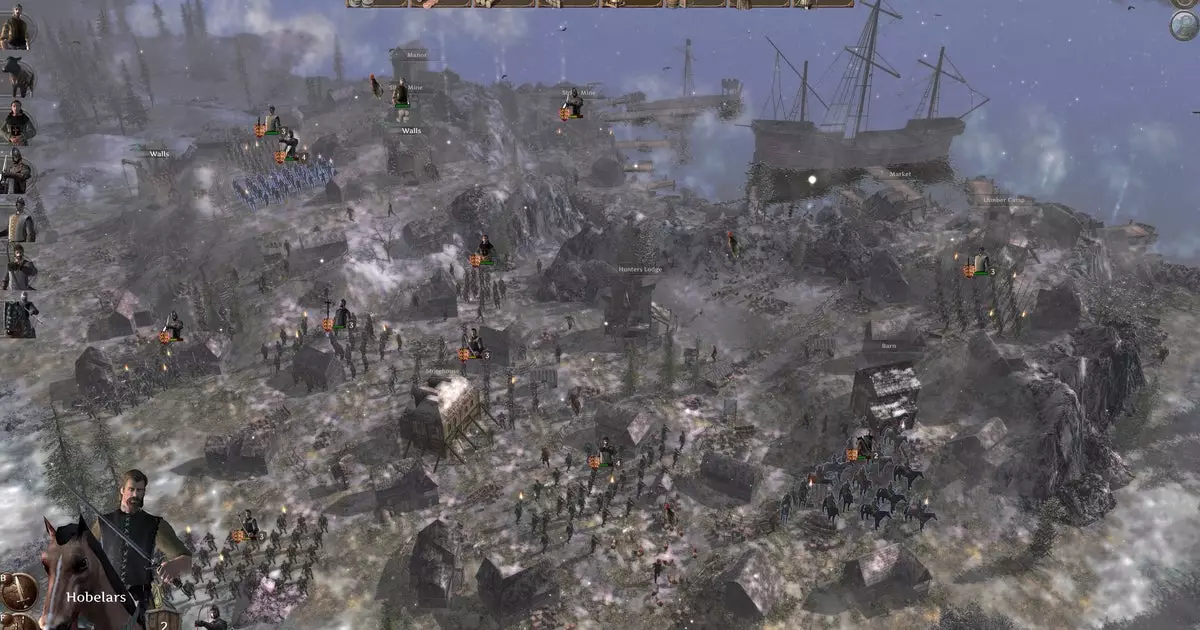The Crusades, a series of brutal medieval conflicts largely driven by religious fervor, continue to captivate scholars and the general public alike. Emerging from a turbulent historical backdrop, these campaigns were not just battles for territory but also ideological clashes between Christianity and Islam. It is fascinating how such a significant period in human history gets distilled into catchy phrases like “deus vult” by modern day enthusiasts—often stripped of the gravitas and complexity it deserves. As we traverse through waves of contemporary gaming experiences that grapple with historical narratives, one wonders whether we can ever strike a balance between entertainment and historical accuracy.
The Gaming Landscape of the Crusades
The recent early access launch of Knights Of The Crusades offers a fresh lens through which we can explore this complex epoch. Developed by the minds behind the Kingdom Wars series, this grand strategy 4X game allows players to engage with key moments from the Crusades, placing them in the roles of both Christian and Muslim factions. Unlike the childlike fantasy of *Age of Empires*, Knights of the Crusades offers a level of detail that aims to reflect the moral ambiguities of the time, making it an intriguing, albeit concerning, gateway into history.
As players embark on their journey through the Holy Land, Spain, and North Africa, they are faced with moral dilemmas that echo through the ages. Rather than glorifying violence, the game appears to present it with a stark realism that recognizes the harrowing implications of these religious wars—raiding villages and confronting the intimate tragedies that took place. The collaboration between strategic warfare and the weight of history calls into question how we understand player choice: will you be the liberator, oppressor, or a blend of both when the choices you make may lead to unimaginable consequences?
The Allure of Historical Narrative
The allure of reliving historical events through a game like Knights Of The Crusades boils down to the tantalizing blend of power and consequence. The developers’ commitment to making each faction feel nuanced—with distinct units, buildings, and cultural mechanics—could elevate the game to a reflective dialogue on identity and conflict. However, there’s a nagging concern about misinterpretation and appropriation of these narratives for entertainment purposes. Will players emerge from the experience with a more profound understanding of the Crusades, or simply crave the thrill of conquest, thereby pandering to the gravestones of actual lives lost?
In an era where video gaming can shape societal perspectives, it’s crucial to interrogate how such narrative avenues can either promote a richer comprehension of history or surrender to sensationalism. The potential for individuals to immerse themselves in campaigns that render them the “bad guys,” à la an Assassin’s Creed narrative, raises ethical questions. The delicate balancing act of enjoying historical representation while not erasing or trivializing the pain associated with that history remains a complex dialogue within gaming culture.
The Time Traveler’s Quandary
While my curiosity about exploring Crusades-themed games inevitably leads to thoughts of Crusader Kings, a poignant reminder of my time constraints and gaming apprehensions drifts into focus. The depth offered by such titles is tantalizing but also daunting, leading to a perpetual game of indecision in a world overflowing with dynamic storytelling. This contemplation encourages a broader discourse about what we truly seek in historical video games—immersion? Education? Escape?
As players become historians, strategists, or mere developers of virtual empires, the motivations behind the desire to engage with such tumultuous narratives will reflect the users themselves. In seeking out representations of the Crusades, we must critically examine our own relationship with history—are we passive observers, or can we become active participants in unearthing truths that shape our contemporary understanding of conflict? Ignoring the heaviness of historical struggles is easy; to acknowledge them requires a far more robust stance—one that can evolve through the power of gaming.
Today’s cultural landscape demands depth and awareness in how history is portrayed, making it crucial to venture beyond surface-level curiosity. Through games like Knights Of The Crusades, the challenge lies in transforming passion for history into a pathway that honors complex legacies rather than diluting them for mere entertainment. The journey of understanding continues, inviting us to explore the encounters between faith, power, and mindset that have defined humanity across time.

